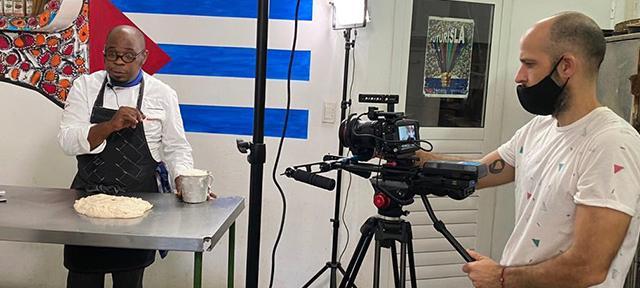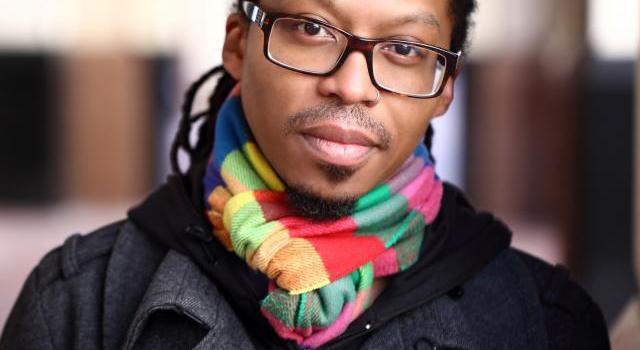Hampshire in Havana Program Embraces Digital Humanities to Create a Dynamic Virtual Immersion Experience

To center critical, historical, and decolonizing points of view, the program produced a series of video interviews with intellectuals, educators, activists, performers, filmmakers, and artists who live and work in Cuba.
Early into the fall of 2020, Associate Professor of U.S. Literatures and Cultural Studies Michele Hardesty recognized that the Hampshire in Havana program as it has existed for the past 22 years would need to reimagine itself. Due to COVID-19 travel restrictions, the program—one of the longest-running college-level study abroad programs to Cuba in the U.S—would not be able to offer the trip.
In order to keep the intellectual exchange vibrant and to offer mutual aid to Hampshire College’s longtime partners in Cuba, Hardesty and Hampshire in Havana partner Roberto García Suárez turned the course into an immersive January Term class that harnessed the power of digital humanities to bridge the physical distance and create a dynamic cultural experience.
To center critical, historical, and decolonizing points of view prior to the term starting, Hardesty and García Suárez worked collaboratively to produce a series of video interviews with intellectuals, educators, activists, performers, filmmakers, and artists who live and work in Cuba. The short films include the first Cuban chef to win a Michelin star, Alberto González of Salchipizza, and poet Georgina Herrera, among others.
The resulting three-week January Term Virtual Havana/La Habana Virtual seminar was conducted fully in conversational Spanish and used the films and other readings to focus on the past and present of Cuba, its capital, Havana, and on life and culture during COVID -19. Students also used Zoom and What’s App to talk more deeply with interview participants around these and other topics.
Throughout the seminar, students also gained a critical framework for understanding Cuba in a historical context through various presentations, conversations, and projects. As a culminating collective project, students collaborated with community partners in Cuba to use the videos to create a digital map of Havana using the application Storymap, which they then presented as a final event for the class. Additionally, the class hosted a virtual arts event that brought together past alums of the program, Cuban friends and partners, and others.
Though the plan for the Hampshire in Havana program is to be once again in-person in the future, the La Habana Virtual/Virtual Havana seminar will be offered again in Spring 2022 as a semester-long course, open to Five College students as well as, space permitting, students from other colleges and universities. Hardesty feels there is much from the virtual experience that can be incorporated into future classes.
“The digital humanities gave us tools to do really rich work that both provided mutual aid to our partners in Cuba and also created an experience that we may not have experimented with otherwise,” she said.
Hardesty, García Suárez, and collaborators Roberto Zurbano (whose video for the course you can watch below) and Diarenis Calderon Tartabull will be giving a presentation on the La Habana Virtual/Virtual Havana seminar at the upcoming Caribbean Studies Association Conference.
Professor Hardesty has been a member of the Hampshire in Havana program since 2012 and was Faculty-in-Residence in Havana for the spring 2015 and 2019 semesters.
La Plantación Invisible: turismo, raza, y colonialidad en La Habana, con Roberto Zurbano from La Habana Virtual on Vimeo.
More information on the Hampshire in Havana program.
Photo in header image: Behind the scenes of "Salchipizza, con Chef Alberto González," directed by May Reguera. Photo by Deborah Hernández.
Leer este artículo en español.



